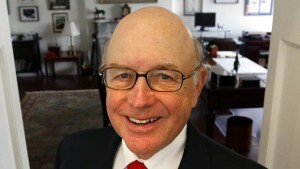 You probably shouldn’t read all 7 pages of Justice Winkler’s report. Hoskins only needs two lines from the 2nd last paragraph. He shared a link to Winkler in his news release. As far as the Minister of Health is concerned, the retired Chief Justice silenced debate with:
You probably shouldn’t read all 7 pages of Justice Winkler’s report. Hoskins only needs two lines from the 2nd last paragraph. He shared a link to Winkler in his news release. As far as the Minister of Health is concerned, the retired Chief Justice silenced debate with:
“In the circumstances, I would urge the OMA to reconsider its rejection of the Ministry’s Proposal. Similarly I would urge the Ministry to not resile [deviate] from its final offer.”
Hoskins tweeted,
“We had an umpire and he sided with us, not the OMA. It was a fair proposal. And a fair process.” And again, “It was a fair offer. Our mutually agreed-upon conciliator (retired judge Winkler) told the OMA to accept it. They didn’t.”
It seemed that way to me too, at first. Winkler sided with government, the end. But after a few deep breaths, I tried to understand why such a highly regarded judge would “…urge the Ministry to not resile…” It didn’t make sense.
Winkler said a 3 year deal
“…would afford the Parties the time required to focus on…the systemic issues threatening the sustainability of Ontario’s publicly funded health system. If the Parties can take advantage of the opportunity that the Task Force provides to them, they will have provided an invaluable service to the citizens of our province.“
What was Winkler talking about?
Winkler’s Report
Since Hoskins made the report public, we’d better discuss it.
A major section, almost 20%, tackles system change. Winkler dares to mention political kryptonite. He asks for review of our publicly funded healthcare system.
If we listen carefully, the 5 paragraphs on pages 6 and 7 may be an historic turning point.
1. Pressing Need
“At the start of the Conciliation it became obvious to me that there was a pressing need for a collaborative dialogue analysing the current system of financing of the delivery of physicians services.”
No surprise here. He believes that a “pressing need” exists to analyze the “current system of financing” MD services. So do many others.
2. Collision Course, Sustainable?
“Absent some rationalization, the system may not be sustainable. Thus, the consensus emerged that without systemic changes to the health care system, the Parties seemed to be on a collision course so that a PSA [Physician Services Agreement], at some point in the future, may not be achievable.”
Does a collision course without systemic changes sound a bit alarmist? Winkler worried that an agreement might be impossible between the parties “at some point in the future“.
3. Review MD Services and Transform the System
Winkler offers two places to start.
“I introduced two initiatives which were intended to be separate from the PSA: The Task Force on the Future of Physician Services in Ontario (the “Task Force”) and the Minister’s Roundtable on Health System Transformation (the “Minister’s Roundtable”).
Both the Task Force and the Minister’s Roundtable would include representatives of important stakeholders in the health care system, especially the public. The purpose of the Task Force would be to conduct a long-term study and analysis of the sustainability of Ontario’s healthcare system with the mandate of advising and making recommendations for systemic changes to the delivery and funding of physician services.
The Parties’ agreement to embark on these initiatives was an important development as it enabled them to focus their discussions on the pressing matters required to agree on the 2014 PSA, with the comfort that the broader systemic issues impacting the sustainability of health care in Ontario would be appropriately and collaboratively addressed in a larger forum. I tabled language that reflected the substance of the consensus reached in these two important areas.”
He says neither government nor physicians can fix the system by themselves. We need a 3rd party to recommend how to change the funding of physician services and broader system issues.
Did Winkler question the fundamentals of publicly funded healthcare? He seems to. He asked to review how physician services are funded. MD services currently rely on tax dollars 100%. Was he asking for a review of whether tax dollars were the best way to fund all physician services, or was he just asking to review how taxes are collected and disbursed? Or did he mean something else entirely?
Ignore Winkler
Will we listen to what Winkler says in his report, or will we make it say only what we want to hear? Will we pick favourite lines and ignore the rest?
Clearly the government loved part of it. Hoskins dismissed the need for system change tweeting that, “We accepted his proposals. It is the year over year increases in billings that he said was unsustainable.” I guess I’d try to read it that way too, if I was in his position. But the judge did not say to cut fees and make plans for more. There’s massive growth in patient need for medical services with 140,000 new patients in Ontario each year. Hoskins’ reduction of the report to nothing but billing increases seems trite.
Will the government allow an objective examination of our system? Will they follow advice wherever it leads?
A task force would not suggest more of the same. If politicians insist on standing on Winkler’s report, we should ask them to stand on the whole thing. Support for cuts rests squarely on review of the system. You cannot have one without the other.
How do you read the report?
photo credit: globeandmail.com
 Medical students fight to do disgusting procedures. Most people find some parts of doctoring attractive, but other parts look unimaginably repulsive.
Medical students fight to do disgusting procedures. Most people find some parts of doctoring attractive, but other parts look unimaginably repulsive.

